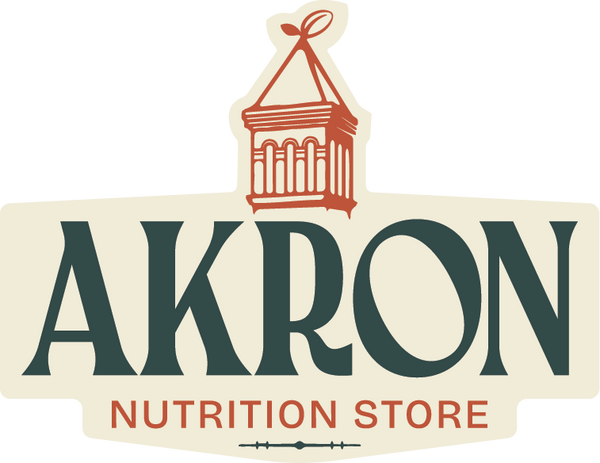
Do Collagen Supplements Work? The Simple Guide
Share
Collagen is the most abundant protein in the human body. It provides strength and support to our connective tissue, bones, and skin.
But as we age, the body breaks down more collagen than it produces, leading to less collagen in the skin and joints. This results in sagging skin, wrinkles, and joint discomfort. Down the line, those issues can even become medical problems. Collagen supplements come in various forms, like collagen peptides, collagen hydrolysate, and collagen drinks, all aiming to restore or maintain healthy collagen levels.
So do collagen supplements work? Here's what the science says.
Collagen Peptides: Take Collagen Supplements To Support Skin Health
One of the most common forms of collagen supplements is collagen peptides. Peptides are short chains of amino acids derived from hydrolyzed collagen, which are easier for the body to absorb and use. Because they are broken down into smaller molecules, collagen peptides can enter the bloodstream quickly and go right into your skin cells, joints, and tissues.
Studies suggest that taking oral collagen supplements containing peptides may support skin hydration, skin elasticity, and even reduce the accumulation of dead skin cells that lead to dullness. Basically, the extra collagen makes sure your skin doesn't age prematurely.
Collagen Production and How Much Collagen You Need
The body’s ability to produce collagen relies on you ingesting all the amino acids required to make the complete protein. As we age, natural collagen production slows, and existing collagen breaks down faster. Factors like too much sun, smoking, and a poor diet can speed this process up.
To support your body’s collagen levels, you need a combination of healthy foods rich in nutrients. Studies note that vitamin C, zinc, and protein are key. In short, eating foods rich in these nutrients promotes natural collagen synthesis.
So, how much collagen do you need? A 2019 review found that doses anywhere from 2.5g a day to 10g were effective, and some studies have used even higher doses.
Why Most Collagen Supplements Contain Collagen Hydrolysate
Collagen hydrolysate is another term for hydrolyzed collagen, often used interchangeably with collagen peptides. The "hydro" in the name comes from water. In a nutshell, it's collagen that's been broken up and mixed with water, increasing its bioavailability. That, in turn, means your body absorbs it more easily and makes it ideal for oral supplementation.
Your skin's collagen stores thus get recharged quicker, and your body allows itself to make new skin cells. Think of collagen like your body's all-purpose cement. When you ingest what you need, your body quickly focuses on fixing everything it can to maintain your body composition.
The Benefits of Collagen Summed Up
So, do collagen supplements help? Research shows they may:
Improve skin moisture and skin health
Increase nail growth and reduce brittle nails
Support connective tissue repair
Reduce joint pain and inflammation
Enhance muscle mass in older adults
Promote wound healing and healthy blood vessels
While collagen supplements help, it's key to remember that your own collagen system comes first. Making sure you keep your body's protein needs in mind will help solve or prevent most of the issues above.
Collagen-Rich Foods and Types of Collagen That Help Maintain Skin Elasticity
Eating collagen-rich foods is a quick and cheap way to support natural collagen production. These include:
Bone broth (rich in gelatin and amino acids)
Pork skin and other animal collagen sources
Citrus fruits and bell peppers (rich in vitamin C)
High protein foods like chicken, fish, and eggs
A balanced diet of these ingredients complements any collagen supplementation and ensures the body gets the building blocks it needs to maintain hydrated skin and reduce skin aging.
So, Should You Take Collagen as Part of Your Health Routine?
While eating foods rich in collagen-supporting nutrients is ideal, dietary supplements offer a convenient way to meet your needs. Older people, particularly, might benefit from supplementation, as well as people with joint-related medical conditions. The most popular supplements include:
Collagen peptides or collagen hydrolysate
Multi-nutrient powders with vitamin C, zinc, and amino acids (these are crucial for absorption).
Capsules or tablets with animal collagen or marine sources
The main difference you'll find is the origin of the collagen. It's generally animal-based, but there are vegan options if you prefer them. Just like any supplement, the most important thing is to choose reputable products tested for purity.
What About Collagen Drinks?
Collagen drinks are another increasingly popular way to support collagen levels. These ready-to-consume beverages often include the same things as powder collagen supplements, but with additives for flavor or even more nutrients.
As long as they don't have any weird chemicals, these are a great way to get your collagen if you don't like tablets and don't want to bother with the powder versions. Make sure to double-check dosages, as many drinks are cryptic when specifying their by-weight contents.
Do Collagen Supplements Work? Our Final Thoughts
Short answer is that in most cases, it does. The long answer depends on your goals, your normal diet, and whether you are supporting your collagen supplementation with healthy eating.
While the body makes collagen naturally, aging and environmental factors can reduce its production. In this case, oral collagen supplements can absolutely support the body’s needs. If your body already produces all it needs, the benefits of extra collagen might decrease substantially.
Unless a medical professional indicates otherwise or you have a preference for tablets, we always recommend trying out one of our powder collagen supplements. They're easy to store, easy to take, and it's more convenient when you're already taking other pills or supplements.
